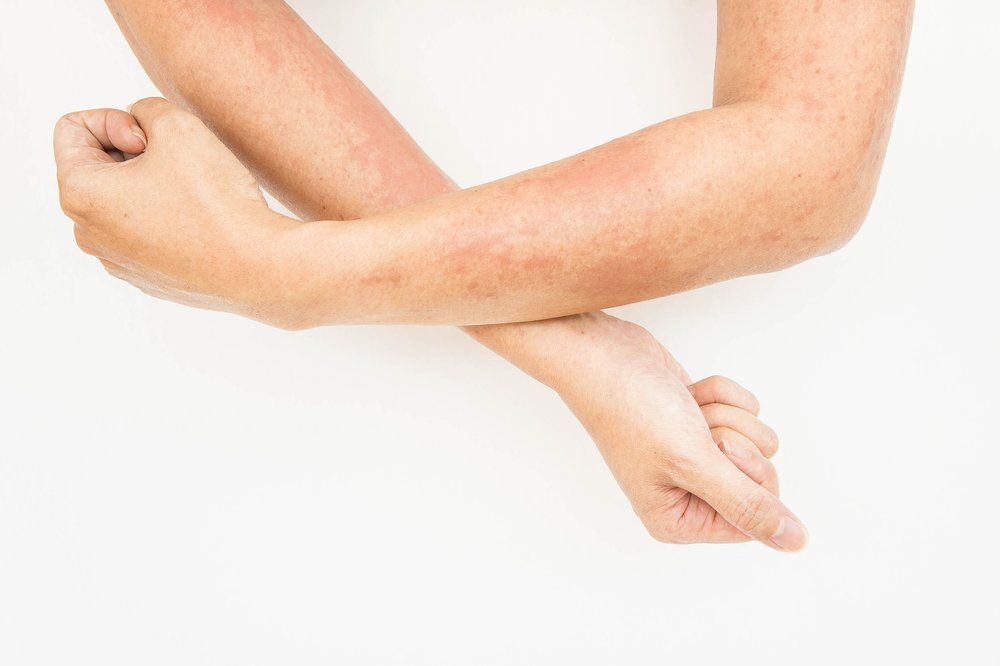- Case-Based Roundtable
- General Dermatology
- Eczema
- Chronic Hand Eczema
- Alopecia
- Aesthetics
- Vitiligo
- COVID-19
- Actinic Keratosis
- Precision Medicine and Biologics
- Rare Disease
- Wound Care
- Rosacea
- Psoriasis
- Psoriatic Arthritis
- Atopic Dermatitis
- Melasma
- NP and PA
- Skin Cancer
- Hidradenitis Suppurativa
- Drug Watch
- Pigmentary Disorders
- Acne
- Pediatric Dermatology
- Practice Management
- Prurigo Nodularis
- Buy-and-Bill
Article
Dupilumab safe for adolescents with atopic dermatitis
Author(s):
Thanks to the phase 3 study that led to dupilumab's approval in adolescent atopic dermatitis (AD), patients can now avoid off-label treatments that may pose a risk of significant long-term toxicity.

Thanks to the phase 3 study that led to dupilumab's approval in adolescent atopic dermatitis (AD), patients can avoid off-label treatments that may pose a risk of significant long-term toxicity, says the study's lead investigator.
RELATED: Pearls for improving sleep in atopic dermatitis patients
Dupilumab gives physicians the first FDA-approved treatment for moderate-to-severe AD in adolescents who have failed topical therapy.
“It's been a godsend for us who see these suffering adolescent patients, and we previously had no FDA-approved therapies,” says Eric L. Simpson, M.D., professor of dermatology at Oregon Health & Science University (OHSU).
Previously, physicians commonly used off-label cyclosporine and methotrexate, which could lead to liver and kidney toxicity over time. Because families were concerned about the potential risks of these therapies, he says, many patients with moderate-to-severe disease remained undertreated and symptomatic.
“The advent of a new targeted therapeutic without the need for labs, and without any end-organ damage, has opened the door to more successful treatment of these kids,” Dr. Simpson says. “This enables patients who were concerned about side effects to get proper therapy and get their symptoms under control.”
In the LIBERTY AD ADOL trial, investigators randomized 251 patients aged 12-17 years to placebo or one of two dupilumab regimens (after loading doses):
- Every four weeks (300 mg)
- Every two weeks (200 mg for patients weighing <60 kg; 300 mg if weight ≥60 kg)
In both groups, a significantly higher proportion of patients reached Eczema Area and Severity Index (EASI) 75 at week 16: 41.5% and 38.1% in the two-week and four-week groups, respectively, versus 8.2% for placebo. Differences versus placebo were 33.2% and 29.9%, respectively (p<0.001 in both analyses).
RELATED: Atopic dermatitis patients need better disease control
Since dupilumab's approval in adolescents AD, Dr. Simpson says, OHSU dermatologists have been prescribing the drug frequently because they understand the long-term effects of inadequately treating AD.
“Children with atopic dermatitis, especially moderate-to-severe, are known to have more difficulty with attention and disrupted sleep. Disrupted sleep, even for a few days, can impact concentration. Over the years, unrelenting itch and poor sleep can often lead to other conditions such as attention-deficit/hyperactivity disorder, anxiety and depression.”
These changes are likely mediated by poor sleep, and possibly by inflammation, he says. “So the hypothesis is if you can treat more moderate-to-severe disease effectively, you can improve sleep and hopefully improve some of these mental-health comorbidities down the road.”
Children’s school performance, behavior and self-confidence tend to increase as well, adds Dr. Simpson.
RELATED: Atopic dermatitis pipeline full of potential
“Some of the study's endpoints show that this is likely happening. Not only did we see the signs of the disease - the redness and excoriation - improve, but we also saw improvement in sleep scores as measured by various endpoints, which I believe is critical, especially for this age group.”
For example, week 16 mean SCORing Atopic Dermatitis (SCORAD) sleep-loss scores declined more than three points from baseline in both treatment groups, versus 1.2 points for placebo (p<0.001 in both analyses).
Regarding safety, dupilumab-treated patients had slightly elevated rates of conjunctivitis (9.8% and 10.8% for two-week and four-week dosing, versus 4.7% placebo) and injection-site reactions.
“With adolescents,” says Dr. Simpson, “this drug works very similarly in both efficacy and safety as it does in adults. We weren't sure if the underlying pathophysiology in adolescent atopic dermatitis is the same as in adult atopic dermatitis. But from the conclusions of this study, adolescents respond similarly in efficacy, and the safety is similar - the main, most clinically relevant side effect we saw in the adolescent trial was conjunctivitis.”
If patients have new or changing eye symptoms, Dr. Simpson recommends consulting with an ophthalmologist to consider various treatment options.
RELATED: Atopic dermatitis treatment hurdles
“Usually dupilumab does not need to be discontinued,” he adds. “But sometimes patients need intermittent treatment for the conjunctivitis, such as lubricating eyedrops, topical corticosteroids or other treatments, depending on severity.”
Disclosures:
Dr. Simpson has received personal fees from AbbVie, Boehringer Ingelheim, Dermavant, Dermira, Galderma, GlaxoSmithKline, Incyte, LEO Pharma, Lilly, Menlo Therapeutics, Pfizer, Pierre Fabre Dermo-Cosmetique, Regeneron, Sanofi Genzyme and Valeant. He also has received grants from AbbVie, Celgene, Dermira, Galderma, LEO, Lilly, Pfizer, Regeneron, Roivant and Sanofi Genzyme and nonfinancial support from Regeneron and Sanofi Genzyme.
References:
Simpson EL, Paller AS, Siegfried EC, et al. Efficacy and safety of dupilumab in adolescents with uncontrolled moderate to severe atopic dermatitis: a phase 3 randomized clinical trial. JAMA Dermatol. 2020;156:44-56.





